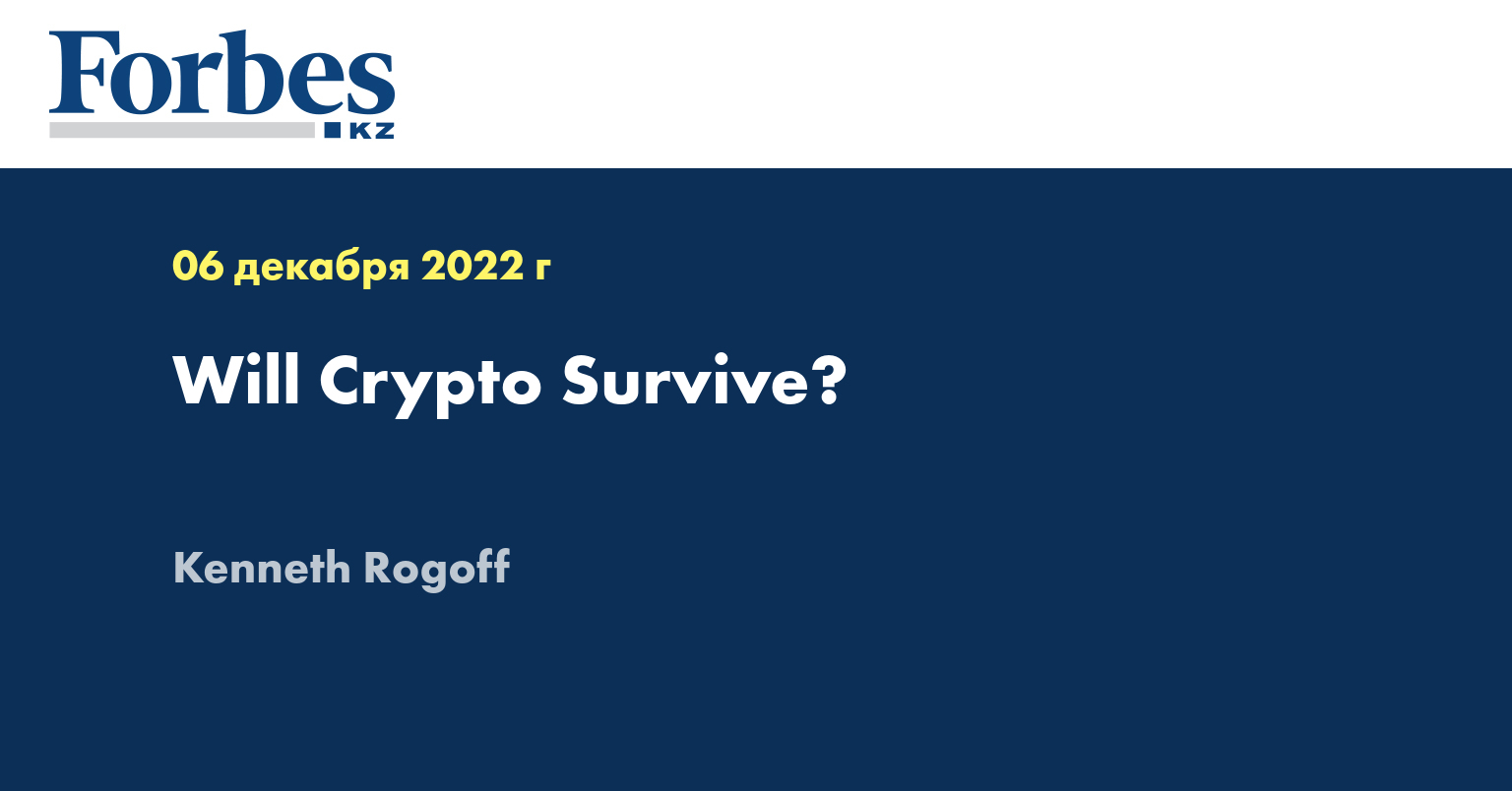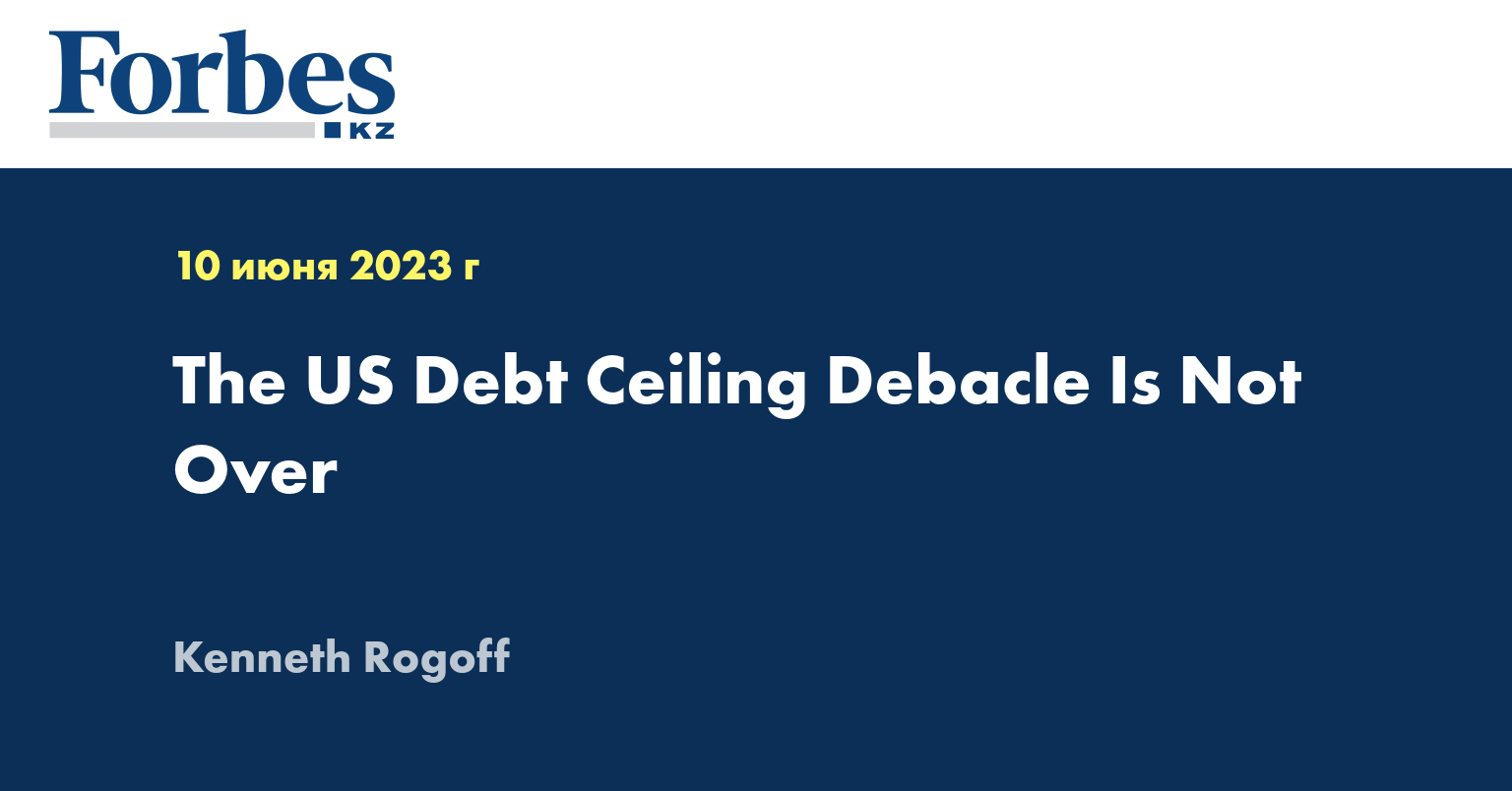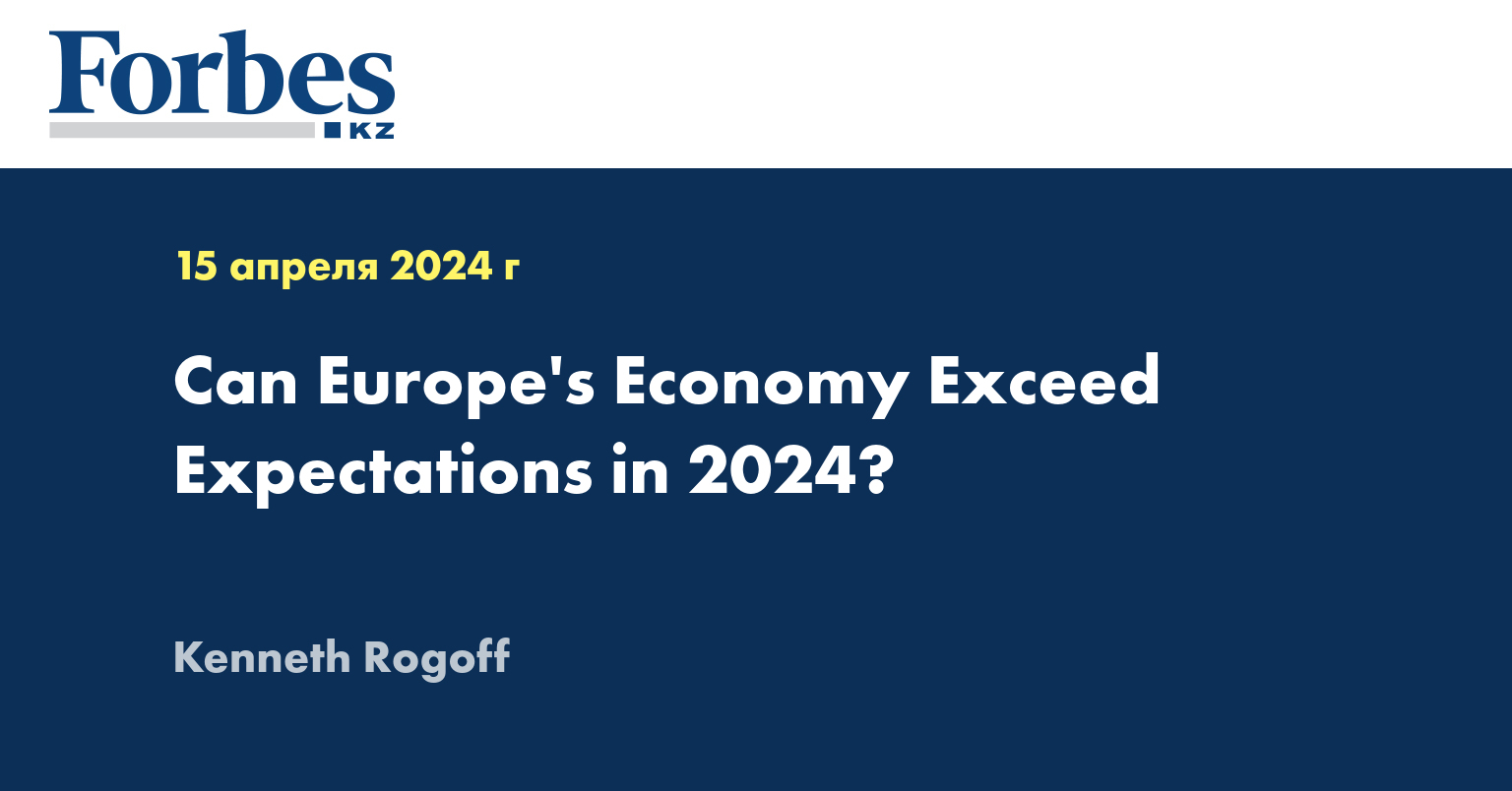SOUTH BEND – Facebook CEO Mark Zuckerberg was at least half right when he recently told the United States Congress that there is no US monopoly on regulation of next-generation payments technology. You may not like Facebook’s proposed Libra (pseudo) cryptocurrency, Zuckerberg implied, but a state-run Chinese digital currency with global ambitions is perhaps just a few months away, and you will probably like that even less
20 ноября 2019
5 мин.
7085
CAMBRIDGE – In case you blinked, the Argentine government built up a pile of debt out of almost nothing with surprising speed, and then proceeded to default on it almost as quickly. Compared to the country’s slow-motion 2002 default, the latest crisis feels like 60-second Shakespeare. But in both cases, default was inevitable, because the country’s mix of debt, deficits, and monetary policy was unsustainable, and the political class was unable to make the necessary adjustments in time
22 октября 2019
4 мин.
10887
CAMBRIDGE – Is it time for the United States to consider switching from income tax to a progressive consumption tax as a way of addressing growing wealth inequality? Many economists have long favored a consumption-based tax system for raising revenue on the grounds of efficiency and simplicity. However, despite occasional vocal adherents, it has never gained political traction. Is it time to think again?
12 сентября 2019
5 мин.
14153
SANTIAGO – The rise of megacities as centers of strong job creation is one of the defining characteristics of the twenty-first-century global economy. But it is not always a positive feature
09 августа 2019
5 мин.
13026
LONDON – Though US President Donald Trump tends to grab most of the headlines, he is hardly a global exception. Populist autocrats have enjoyed a breathtaking rise to power in countries around the world, and nowhere is the trend more pronounced than in Latin America following the elections of Mexico’s leftist president, Andrés Manuel López Obrador (AMLO), and Brazil’s right-wing president, Jair Bolsonaro. Americans are right to complain about Trump’s autocratic tendencies, but, as former Chilean Finance Minister Andrés Velasco would remind them, Trump is a mere apprentice compared to Latin America’s populists
10 июня 2019
5 мин.
8421
CAMBRIDGE – Displaying a degree of courage and clarity that is difficult to overstate, US senator and presidential candidate Elizabeth Warren has taken on Big Tech, including Facebook, Google, Amazon, and Apple. Warren’s proposals amount to a total rethink of the United States’ exceptionally permissive merger and acquisition policy over the past four decades. Indeed, Big Tech is only the poster child for a significant increase in monopoly and oligopoly power across a broad swath of the American economy. Although the best approach is still far from clear, I could not agree more that something needs to done, especially when it comes to Big Tech’s ability to buy out potential competitors and use their platform dominance to move into other lines of business
09 апреля 2019
4 мин.
11000
A decade on from the 2008 global financial crisis, policymakers constantly assure us that the system is much safer today. The giant banks at the core of the meltdown have scaled back their risky bets, and everyone – investors, consumers, and central bankers – is still on high alert. Regulators have worked hard to ensure greater transparency and accountability in the banking industry. But are we really all that safe?
08 февраля 2019
4 мин.
9901
If you ask most central bankers around the world what their plan is for dealing with the next normal-size recession, you would be surprised how many (at least in advanced economies) say “fiscal policy.” Given the high odds of a recession over the next two years – around 40% in the United States, for example – monetary policymakers who think fiscal policy alone will save the day are setting themselves up for a rude awakening
17 января 2019
4 мин.
11171
The chess world is reeling from an accusation of cheating that has generated headlines around the world, even drawing a response from Elon Musk
21 октября 2022
4 мин.
81321
The epic collapse of wunderkind Sam Bankman-Fried’s $32 billion crypto empire, FTX, looks set to go down as one of the great financial debacles of all time
06 декабря 2022
4 мин.
65933
The tentative deal that was just struck to raise the United States’ debt ceiling won’t make the problem go away
10 июня 2023
4 мин.
44247
It is now past time to revisit the widely prevailing “free lunch” view of government debt
12 декабря 2023
5 мин.
43792
Over the past few years, China has significantly expanded its economic footprint in South America, overtaking the United States as the continent’s largest trading partner
17 мая 2023
5 мин.
43477
Who should pay for Ukraine’s postwar reconstruction?
27 августа 2023
4 мин.
40216
The global economy was full of surprises in 2023
10 января 2024
5 мин.
34450
A month into 2024, the consensus forecast for the global economy remains cautiously optimistic, with most central banks and analysts projecting either a soft landing or potentially no landing at all
02 февраля 2024
5 мин.
31824
After 15 years of economic upheavals, from the European debt crisis to the COVID-19 pandemic and Russia’s invasion of Ukraine, the European economy appears set to underperform in 2024. But are appearances deceiving?
15 апреля 2024
4 мин.
20709
LONDON – Will the next recession be worse than you think? With the major central banks having little space for further interest-rate cuts, might the next cyclical downturn become a crash? In theory, fiscal policy can go far in filling the void. The past decade has seen a rise in fiscal evangelism among many economists and policymakers, and it is indeed likely that fiscal fine-tuning will be widely tested in the next downturn. Are they right?
10 февраля 2020
5 мин.
16779
Who should pay for Ukraine’s postwar reconstruction?
27 августа 2023
4 мин.
40216
In the surprise hit movie “Crazy Rich Asians” (based on a 2013 Kevin Kwan novel), a New York University economics professor (Rachel), travels with her boyfriend to Singapore to meet his family. There, she learns, apparently for the first time, that her significant other (Nick) is heir to one of Asia’s largest fortunes and has a mother intent on making sure her son does not marry a commoner, Asian-American or not
24 октября 2018
5 мин.
8609
LONDON – Though US President Donald Trump tends to grab most of the headlines, he is hardly a global exception. Populist autocrats have enjoyed a breathtaking rise to power in countries around the world, and nowhere is the trend more pronounced than in Latin America following the elections of Mexico’s leftist president, Andrés Manuel López Obrador (AMLO), and Brazil’s right-wing president, Jair Bolsonaro. Americans are right to complain about Trump’s autocratic tendencies, but, as former Chilean Finance Minister Andrés Velasco would remind them, Trump is a mere apprentice compared to Latin America’s populists
10 июня 2019
5 мин.
8421
A month into 2024, the consensus forecast for the global economy remains cautiously optimistic, with most central banks and analysts projecting either a soft landing or potentially no landing at all
02 февраля 2024
5 мин.
31824
With so much angst about artificial intelligence and the future of work, the recent world chess championship in London offers some hope
11 декабря 2018
5 мин.
8426
CAMBRIDGE – Displaying a degree of courage and clarity that is difficult to overstate, US senator and presidential candidate Elizabeth Warren has taken on Big Tech, including Facebook, Google, Amazon, and Apple. Warren’s proposals amount to a total rethink of the United States’ exceptionally permissive merger and acquisition policy over the past four decades. Indeed, Big Tech is only the poster child for a significant increase in monopoly and oligopoly power across a broad swath of the American economy. Although the best approach is still far from clear, I could not agree more that something needs to done, especially when it comes to Big Tech’s ability to buy out potential competitors and use their platform dominance to move into other lines of business
09 апреля 2019
4 мин.
11000
If you ask most central bankers around the world what their plan is for dealing with the next normal-size recession, you would be surprised how many (at least in advanced economies) say “fiscal policy.” Given the high odds of a recession over the next two years – around 40% in the United States, for example – monetary policymakers who think fiscal policy alone will save the day are setting themselves up for a rude awakening
17 января 2019
4 мин.
11171
CAMBRIDGE – Why are stock-market valuations soaring when the real economy remains so fragile? One factor has become increasingly clear: The crisis has disproportionately affected small businesses and low-income service workers. They are essential for the real economy, but not so much for equity markets. True, there are other explanations for today’s lofty valuations, but each has its limitations
12 октября 2020
5 мин.
5359
A decade on from the 2008 global financial crisis, policymakers constantly assure us that the system is much safer today. The giant banks at the core of the meltdown have scaled back their risky bets, and everyone – investors, consumers, and central bankers – is still on high alert. Regulators have worked hard to ensure greater transparency and accountability in the banking industry. But are we really all that safe?
08 февраля 2019
4 мин.
9901
The global economy was full of surprises in 2023
10 января 2024
5 мин.
34450
У автора нет статей, опубликованных в журнале Forbes Kazakhstan
Подписывайтесь на нашу страницу в Facebook
Новости партнёров
Выбор редактора
Обсуждаемые в Соцсетях
Самые Читаемые

























